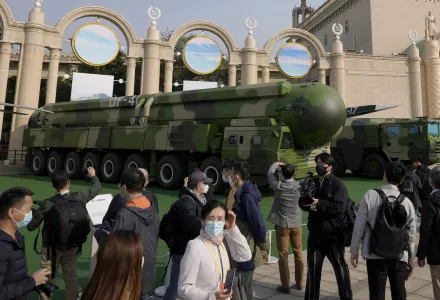
Summary
China is modernizing and significantly expanding its nuclear forces. This fuels concern that China’s traditional nuclear strategy—premised on a limited nuclear arsenal for assured retaliation and a no-first-use policy—is undergoing a major change. The shift in the conventional balance of force in the region and the U.S. development of lower-yield nuclear weapons have led to greater fears in China of U.S. limited nuclear use in a conflict. A nuclear-conventional entangled security dilemma is emerging.
Henrik Stålhane Hiim, M. Taylor Fravel, and Magnus Langset Trøan, "The Dynamics of an Entangled Security Dilemma: China’s Changing Nuclear Posture," International Security 47, no. 4 (Spring 2023): 147–187, https://doi.org/10.1162/isec_a_00457.


